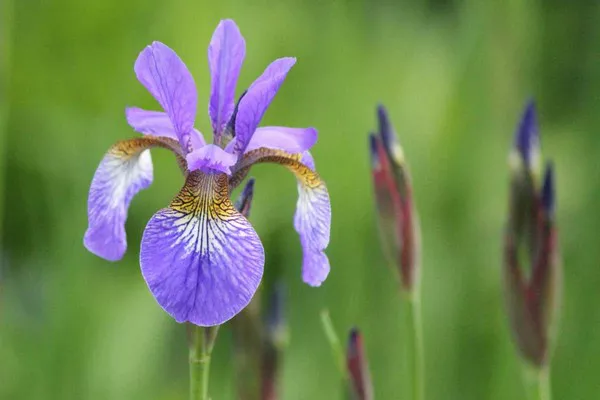The tradition of associating specific flowers with each month of the year dates back centuries and is deeply rooted in mythology and folklore. These birth flowers are thought to symbolize the unique characteristics and qualities of individuals born in those months. January, the first month of the year, is represented by the enchanting Carnation. In this article, we’ll explore the rich history, symbolism, and interesting facts surrounding January’s birth flower, the Carnation.
1. A Historical Perspective of Carnation
Carnations have been cultivated for over 2,000 years and hold a special place in human history. The name “Carnation” is believed to have originated from the Latin word “corone,” meaning “flower garland” or “wreath,” which was commonly used in ancient times for decorations and ceremonial purposes. These flowers were highly valued by the Romans and Greeks, who used them extensively in various rituals and festivals.
2. Symbolism of Carnations
Carnations have a wide range of symbolic meanings, making them a versatile choice for many occasions. The primary symbolism associated with Carnations includes:
Love and Affection: Carnations are often considered symbols of love, affection, and admiration. They make popular choices for romantic gestures, such as giving them to a loved one on Valentine’s Day.
Purity and Good Luck: White Carnations are often associated with purity and good luck. They are commonly used in wedding bouquets and as gifts for new mothers.
Fascination and Admiration: Light red and pink Carnations are symbolic of admiration and fascination. They can be given as tokens of appreciation or to express admiration for someone’s achievements.
Resilience and Strength: The sturdy nature of Carnations has led them to symbolize resilience and strength. This symbolism is particularly relevant to those born in January, as it represents their ability to overcome challenges.
Mother’s Love: In some cultures, Carnations are seen as a symbol of a mother’s love and are given on Mother’s Day to honor and express gratitude to mothers.
3. Cultural Significance of Carnation
The Carnation has deep cultural significance in various parts of the world:
China: In China, Carnations are associated with purity and luck. They are often used in traditional medicine and as decorative elements during the Chinese New Year celebrations.
Spain: Red and white Carnations are widely used in Spain during religious festivals and processions, particularly during Holy Week.
Greece: In ancient Greece, Carnations were used to create garlands and wreaths for honored guests and athletes competing in the Olympic Games.
Japan: In Japan, Carnations are known as “Nadeshiko” and are considered symbols of gentle and kind-hearted people. They are often used in traditional tea ceremonies.
4. January’s Birthstone and Flower Connection
Intriguingly, January has not one but two birth-related symbols: the Garnet birthstone and the Carnation birth flower. These two symbols are intertwined in their significance:
Garnet and Carnation Harmony: Both Garnet and Carnation share the symbolic theme of protection and strength. Garnet, a deep red gemstone, represents protection from harm and is believed to bring good luck. This harmonizes with the Carnation’s symbolism of resilience and strength.
Color Correlation: The deep red variety of Carnations, in particular, complements the rich red hue of Garnets. This color synergy symbolizes passion and determination, making it an ideal combination for January-born individuals.
5. Interesting Facts about Carnations
Let’s delve deeper into the fascinating world of Carnations with some lesser-known facts:
Variety of Colors: Carnations come in various colors, each with its unique symbolism. Red Carnations represent love, while pink ones symbolize gratitude. Purple Carnations are associated with capriciousness, and yellow Carnations convey disappointment.
Longevity: Carnations are known for their impressive vase life. With proper care, they can remain fresh for up to three weeks, making them an enduring choice for floral arrangements.
Edible Delicacies: Carnations are edible flowers and are often used as garnishes in salads, desserts, and cocktails. They add a subtle, floral flavor and a touch of elegance to culinary creations.
Medicinal Uses: In traditional medicine, Carnations were used to treat various ailments, such as fever, stress, and digestive problems. Their essential oil is still used in aromatherapy for relaxation and stress relief.
Conclusion
The Carnation, with its rich history, diverse symbolism, and cultural significance, makes for an enchanting birth flower for the month of January. Its association with love, admiration, resilience, and good luck mirrors the qualities of those born in this chilly yet hopeful month. Whether you’re a January baby or simply appreciate the beauty of Carnations, these flowers are a timeless and meaningful choice for any occasion. So, the next time you come across a Carnation bouquet, take a moment to appreciate the history and symbolism behind this captivating bloom.


